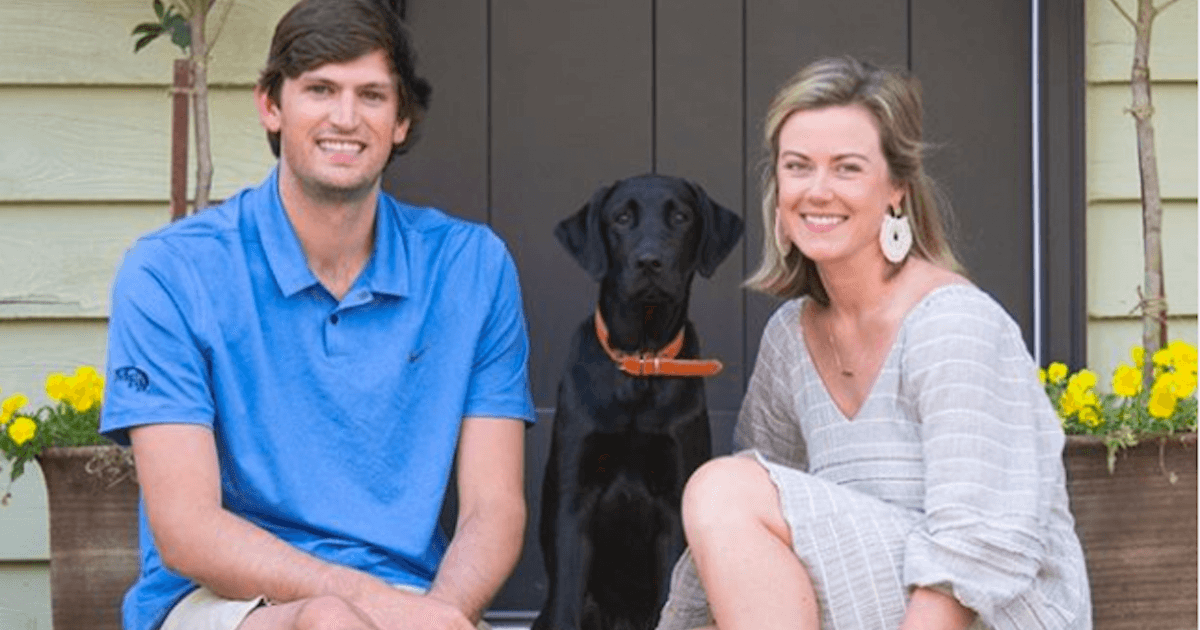Natalie Coxe was 19 and returning to college when her mother suggested a checkup. “I humored her and went,” she told SurvivorNet. “But looking back, I believe that God’s hand had me go to the doctor.” Coxe felt healthy, taking spin class and running 3 miles every day.
“But when the doctor asked, “anything going on?” I remembered I’d had some abdominal pain, especially when I’d lie on my stomach.”
Read MoreLooking back, she’d chalked up her abdominal weight gain to college life. A next-day ultrasound ruled out an ovarian cyst.
Then her doctor called, “She asked me to bring my parents into the room, put the phone on speaker, and sit down.” The diagnosis: Stage 3C Dysgerminoma: Ovarian cancer. “I’m sorry to say,” she added, “but these tumors are often malignant.”
Referred to a gynecological oncologist, Coxe had surgery five days later. “By then, the tumor had almost doubled in size.” College was off. Cancer became her full-time job: She underwent four rounds of inpatient chemotherapy treatments — each, 6 days long: “I think the world of gyn/ocs because they do it all the surgery, the chemotherapy, they know so much.”
Young Women And Ovarian Cancer
She wrote her new book, “Nattitude: Fighting Cancer, Surviving, and Making the Choice to Keep Living” because, “when I was diagnosed in 2012 only 1% of women diagnosed with ovarian were under the age of 20,” says Coxe, “There were no good books for young people.”
RELATED: Inspiring Model, Ash Foo, 23, Walked New York Fashion Week With Ovarian Cancer in Remission
Now a board member of the South Carolina Ovarian Cancer Foundation, she says nobody tells you about the challenges of survivorship: “Cancer had become a constant in my life. I’d mastered it. I was proud of being ‘The Girl Who Beat Cancer’. When I ended treatment, I had to decide, ‘who am I going to be now?”
She tells young people facing a diagnosis:
- Find Your Positive Posse: “They’re the friends; not the ones who do a favor, then post it on Facebook for “cancer credit’.”
- Don’t Believe Everything You Read on the Internet: “Stick to the information your gynecological oncologist gives you.”
- Don’t Forget to Live: “At my last chemo, my nurse, Lynne, whispered that in my ear. I’d gotten good at being a cancer patient, but survivorship can be harder than treatment — I had no idea what to do next.”
At her Wofford college graduation, TODAY host, Craig Melvin, slipped a tribute to Coxe and her cancer journey in his speech. “I just put a copy of the book in the mail to him,” she said.
TODAY host, Craig Melvin on the importance of knowing your family history and cancer-risk.
Symptoms and Warning Signs
When detected early, ovarian cancer can have a better than 90% cure rate. But it’s symptoms — like cramping, abdominal bloating, or lower back pain are easy to ignore — meaning only 20% of cases are caught early.
"We don't have a good screening method, but if you have symptoms, it's very important that you go to your physician because there might be an opportunity that we can detect it when it's still early stage," says Dr. Jose Alejandro Rauh-Hain, a gynecologic oncologist at MD Anderson Cancer Center.
Ovarian cancer symptoms include bloating, abdominal pain, and changes in bowel habits. Some patients mention a feeling of fullness, which reduces their appetite. "It's very important the patients are not afraid to ask questions to their physicians,” Dr. Rauh-Hain says, "because the sooner we can diagnose the cancer, the better the prognosis.”
Genetic Testing is Essential
Genetic testing at the time of an ovarian cancer diagnosis can help your oncologist determine the ideal treatment for your specific cancer. Women with the BRCA gene mutation have seen promising benefits from PARP inhibitor drugs, which work by preventing cancer cells from repairing their own DNA after chemotherapy.
RELATED: When Cancer Runs in the Family: Survivor Amy Armstrong On The Importance of Genetic Testing
PARP inhibitors have been found to extend life for women at all stages of cancer treatment. The PARP inhibitors olaparib (known by its brand name, Lynparza) and niraparib (brand name Zejula) are now approved to treat advanced ovarian cancer in the first-line setting, meaning before an initial round of chemotherapy.
Most recently, the Food and Drug Administration has approved niraparib (brand name ZEJULA) for almost all women regardless of whether they have the BRCA mutation, as part of an initial course of treatment, or what's called front-line treatment.
If you're considering genetic testing, ask your relatives if they know of any family members who've had breast or ovarian cancer. A family medical history can point to hereditary BRCA mutations, though a person can still carry a BRCA mutation without a family history of cancer.
Knowing your family medical history is an important part of taking charge of your health. Keep this information up to date, and share it with your primary care doctor or other healthcare professionals regularly.
Learn more about SurvivorNet's rigorous medical review process.


